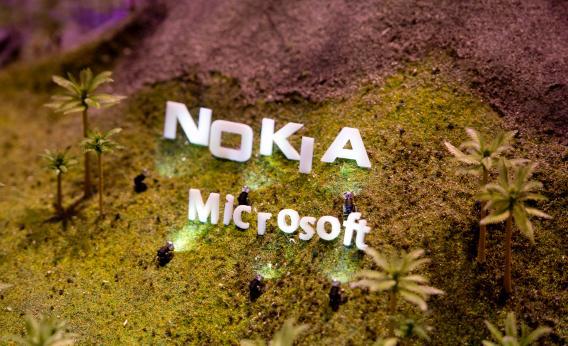As I wrote when his retirement was announced, Steve Ballmer is an American hero who plunged Microsoft’s enormous Office/Windows profits into futile efforts to compete with Google, Sony, Apple, and others. Very few of those Ballmer investments paid off for Microsoft shareholders, but they generated huge amounts of consumer surplus by preventing other firms (and especially Google) from becoming predatory monopolists. The clear risk is that post-Ballmer Microsoft will be run along principles of narrowminded shareholder value maximization and the world will lose out as a result.
Today, that catastrophe looks closer to reality as the company announces a new $40 billion share buyback plan (not so bad, but pretty lame) and a 22 percent increase in dividends to 28 cents a share.
Boooooring.
I can’t, exactly, dispute this as a question of corporate strategy. For all the talk about how to “save” Microsoft, it’s not particularly clear that the company does need to be saved. If they simply stopped doing things that lose money, they’d be left with an enormously profitable company and one that’s well-positioned to keep making huge profits for years to come by iterating on its core products. Yes, in the long-term those profits are shrinking. But they’re large today and will be large for years to come, and simply kicking those profits out as dividends rather than trying to reinvest them in great new ideas might be the best thing for shareholders.
But it’s certainly not the best thing for the world. The best thing for the world was Ballmer-style loyalty to the firm and to the brand and determination to find a way to elbow into new markets. That brought us competition, it kept the competition honest, and in some key ways it spurred innovation. The original motive for the Android project, after all, was that Google feared Microsoft (not Apple, whose high margin strategy prevents market share domination) would monopolize the mobile phone space and use its control over that market to outflank them in the search business. As a result, the world’s gotten to benefit from a tremendously useful free mobile operating system. If Microsoft withdraws from the innovation game and focuses on enriching shareholders, we’re going to lose out.
